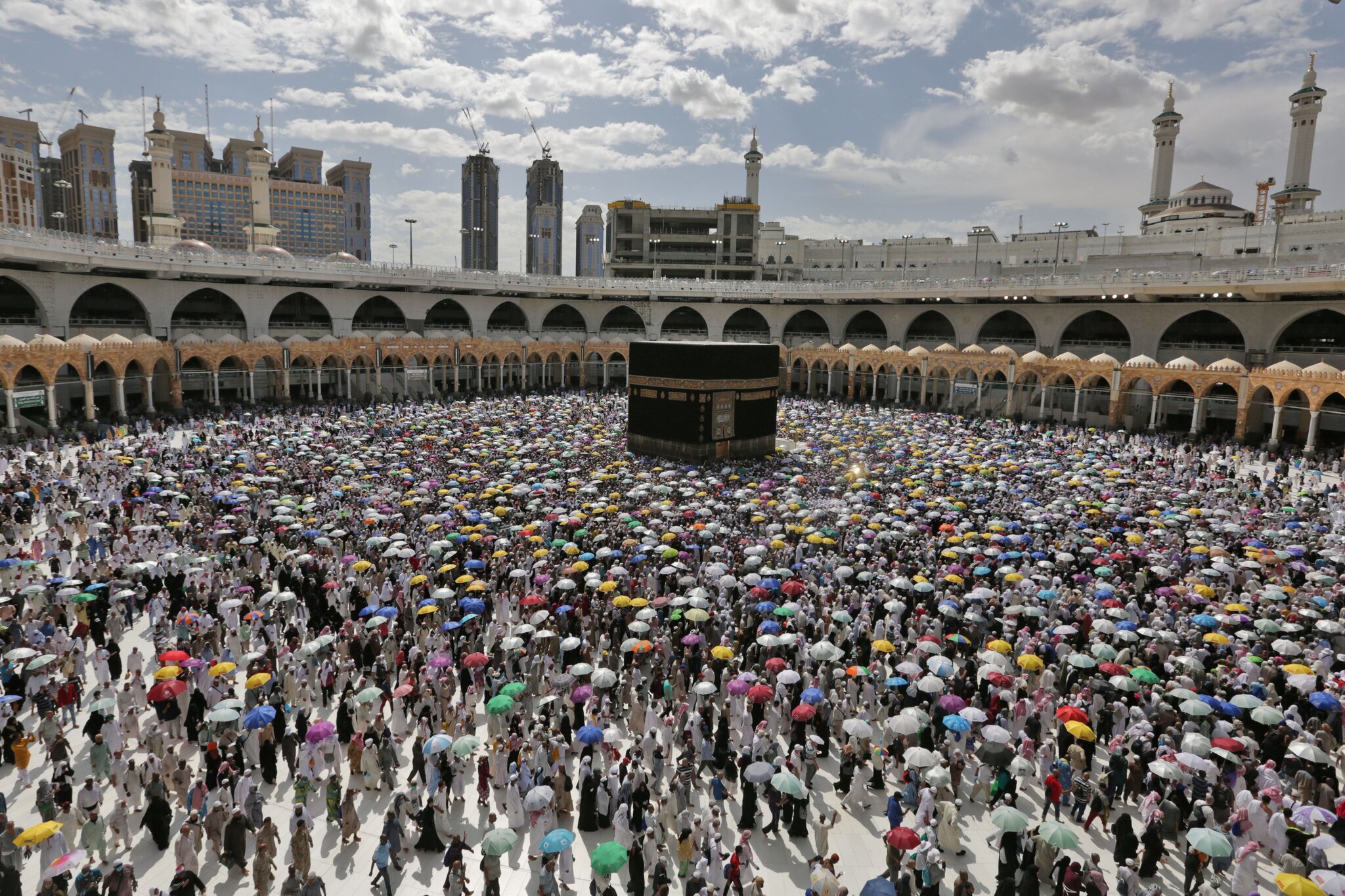OPTIONAL THEME:
KNOWLEDGE AND RELIGION
Dalai Lama at the sacred Buddhist site of Bodh Gaya, India, in 2018.
Photo: AFP/Getty Images
UBIQUITY AND DIVERSITY OF RELiGIOUS PRACTICES
Fully 84% of the roughly 7.8 billion people on the planet self-identify as religious. This is seems reason enough for elevating Knowledge and Religion as an optional theme. When students gain an appreciation of the ubiquity and rich diversity of religious practice and ritual around the world, they are able to move beyond the naive assumption that religion is simply belief without evidence.
The class activities presented below invite respectful and open-minded exploration of how multifarious religious practices are often inextricable from how we perceive ourselves and our world.
Some of the many thousands of pilgrims who undertook the hajj in the Grand Mosque in Mecca in August 2019.
Photo credit: EPA, via Shutterstock
CLASS ACTIVITIES
Introduction to the Variety of Religious Experience
World Faiths Slideshow
Global Religious Landscape
A Trick Question About Religion
Languages Of Papua New Guinea Origin Story
A very persistent meme
Sixty second adventures in religion
The God meme--Going Viral
On the limits of evolutionary psychology
Differentiating religion/religiosity from personal faith
Refining our definition of religion
Religion/religiosity vs. personal faith
Encounter with radical atheism
The four horsemen
Bertrand Russell
Zen TOK
KNOWLEDGE QUESTIONS
The new Theory of Knowledge Guide (2020) provides 385 Knowledge Questions for student exploration. Here are some personal favorites for knowledge and religion.
SCOPE
If knowledge is a map, what is the territory that religion represents?
What is the value of thinking about questions to which there are no definite answers?
Is the point of knowledge to produce meaning and purpose in our lives?
Is faith a prerequisite for religious knowledge?
PERSPECTIVES
How has our understanding and perception of religious knowledge changed over time?
Are those outside a specific religious tradition really able to understand its key ideas?
To what extent is it legitimate for a nonbeliever to criticize the content of a religious belief?
METHODS AND TOOLS
What is the role of analogy and metaphor in the acquisition of religious knowledge?
Do ritual and habit play a special role in the formation of religious knowledge?
What difficulties are presented by using human language to discuss religious claims?
ETHICS
Do we have an ethical responsibility to gain knowledge of different religions to help us better understand the world and those around us?
If religion is intimately connected with ethics, should we expect those with religious knowledge to act more ethically than those without it?
CONNECTING TO THE CORE THEME
What kinds of knowledge can be gained through introspection?
How does our own theism, atheism or agnosticism have an impact on our perspective?
Do you agree with Carl Sagan’s claim that “extraordinary claims require extraordinary evidence”?
Observance of the Sikh festival Vaisakhi which commemorates the arrival of the Solar new year. Walsall, England. April 2018.
Photo source: Getty Images


